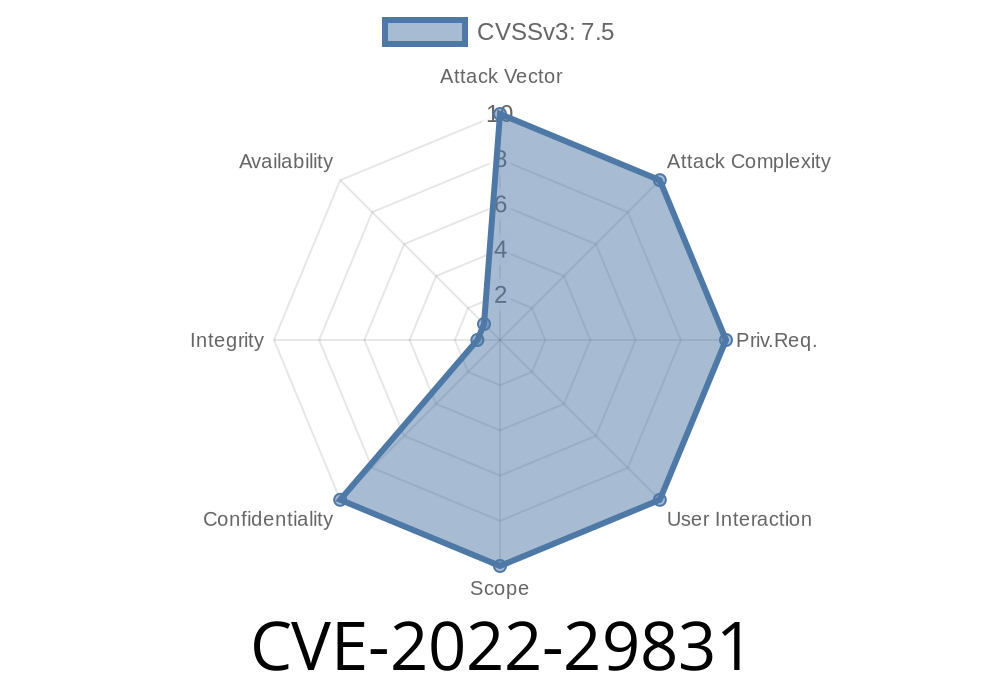Cybersecurity isn’t just about complex hacking—it’s sometimes about simple developer mistakes. Today, we’re breaking down CVE-2022-29831, a vulnerability in Mitsubishi Electric GX Works3 engineering software. If you manage or code industrial systems, keep reading. We'll walk through what's wrong, reference the official sources, and explain (with code!) how an attacker could exploit the problem.
What is CVE-2022-29831?
In mid-2022, a security advisory (Mitsubishi Advisory 2022-016) revealed that GX Works3 (ver. 1.015R and up)—a programming tool used for MELSEC safety CPU modules—has a hard-coded password. In developer terms, this means a secret password is embedded somewhere in the code or file, the same for every user. That’s a big no-no: any attacker who finds it can use it.
Where is the Vulnerability?
When GX Works3 project files are created for the MELSEC safety CPU modules, certain information about the configuration is “protected”. But, since the password is hard-coded, anyone can unlock it with the same key—no authorization required.
Official Advisory References
* NVD Listing: CVE-2022-29831
* Mitsubishi Security Advisory (PDF)
* ICS-CERT Alert
How Can Attackers Exploit this Bug?
Let’s walk through how a remote attacker could use this flaw to extract confidential project data from a targeted organization.
Step 1: Find the Project File
An attacker first needs access to a GX Works3 project file. These might be stolen, phished, intercepted over a network, or grabbed from an unsecured server.
Step 2: Identify the Protection Mechanism
GX Works3 “protects” project files using a password. But, in unsafe versions, this password is the same for everyone—hard-coded by Mitsubishi. The attacker doesn’t even need to guess the password—just extract it from the software.
Attackers can either
- Reverse Engineer the Software: Open up the installer or EXE in a tool like Ghidra or IDA Pro and look for string references to passwords.
- Use Public Scripts: Search the internet for scripts (often shared on hacking forums) claiming to “unlock” GX Works3 files using the default password.
Let's imagine, for educational purposes, a Python example of how a hard-coded password might be revealed:
# Hypothetical snippet: how a hardcoded password could look like
def get_project_password():
# This should not be hardcoded!
return "MelsecSafety!2022"
def unlock_project_file(file_path):
password = get_project_password()
# Assume we're calling some decryption utility here
decrypted_data = decrypt_file(file_path, password)
return decrypted_data
def decrypt_file(file_path, password):
with open(file_path, 'rb') as f:
data = f.read()
# Pseudocode for decryption using the password
# The real process could be much more complex
decrypted = simple_decrypt(data, password)
return decrypted
# Usage
decrypted_project = unlock_project_file('path/to/GXProject.gx3')
print(decrypted_project)
Of course, the exact password and decryption logic are secrets Mitsubishi would rather you not have, but many researchers have extracted such hard-coded secrets by taking apart the software.
Step 4: Read Out Project Data
Now, the attacker can read out the protected configuration and logic of the MELSEC safety CPU modules. This could reveal:
Steal sensitive information: Learn about plant operations, communications, and safety logic.
- Prepare follow-up attacks: Craft social engineering schemes, or make targeted attacks against known weak settings.
- Undermine safety: In a worst-case scenario, use the extracted info to compromise the safety systems controlling real industrial machinery.
Remember: You don’t even need to be an authorized user. Anyone who gets their hands on a project file and this password can unlock the data.
How to Protect Yourself
- Update GX Works3 to the latest version. Mitsubishi has released patches—get them from here.
Limit access to project files. Store files in secure, access-controlled storage.
- Use encryption and strong passwords. Don’t rely on the built-in protection—layer your security.
Conclusion: The Real Lesson
The story of CVE-2022-29831 is a cautionary tale about trust, software development, and cyber hygiene. Hard-coding passwords is a shortcut that can endanger entire factories.
If your organization uses GX Works3 with MELSEC safety CPUs, check your software version today—and reconsider how you store, share, and protect project files.
Further Reading
- Original CVE Record (NIST)
- Mitsubishi Security Update
- ICS-CERT Advisory
*This guide is provided for educational purposes and to raise awareness on industrial cybersecurity. Don’t use it for unethical activities—use it to defend your systems and advocate for secure coding!*
Timeline
Published on: 11/25/2022 00:15:00 UTC
Last modified on: 11/28/2022 20:58:00 UTC
